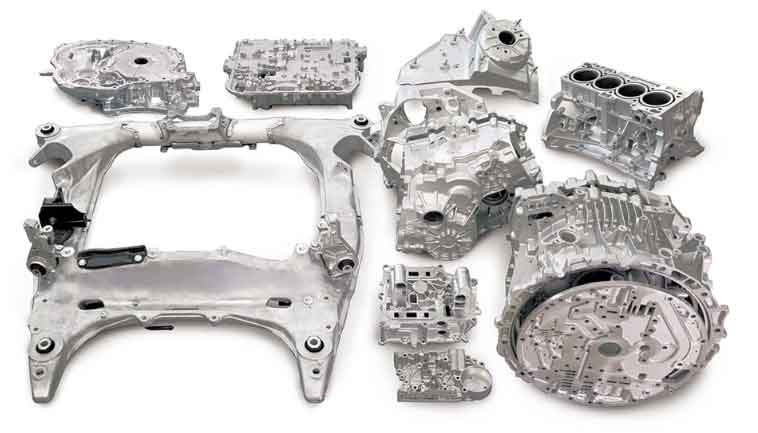
When it comes to die casting, choosing the right alloy is crucial for achieving the desired properties and performance of the final component. There are several die casting alloys available, each with its own unique characteristics and advantages. Here are some commonly used die casting alloys and their key features:
- Aluminum Alloys: Aluminum alloys are the most widely used in die casting due to their excellent combination of properties, including low density, good strength-to-weight ratio, corrosion resistance, and high thermal conductivity. They are ideal for applications requiring lightweight and durable components, such as automotive parts, consumer electronics, and aerospace components. Some popular aluminum alloys for die casting include ADC12, A380, and A360.
- Zinc Alloys: Zinc alloys are known for their exceptional casting properties, including high fluidity, excellent dimensional stability, and good impact strength. They offer excellent precision and detail reproduction, making them suitable for intricate and complex parts. Zinc alloys also provide good corrosion resistance and are highly recyclable. They are commonly used in automotive components, electrical connectors, and decorative hardware.
- Magnesium Alloys: Magnesium alloys are lightweight and offer high strength-to-weight ratios, making them suitable for applications where weight reduction is critical, such as in the aerospace and automotive industries. Magnesium alloys exhibit good heat dissipation and electromagnetic shielding properties. They can also be easily machined and have good castability. Popular magnesium alloys for die casting include AZ91D and AM60B.
- Copper Alloys: Copper alloys are known for their excellent electrical and thermal conductivity, making them suitable for electrical and electronic components that require efficient heat dissipation. Copper alloys also offer good corrosion resistance, dimensional stability, and high tensile strength. They are commonly used in electrical connectors, power transmission components, and plumbing fittings.
- Brass Alloys: Brass alloys, which are primarily composed of copper and zinc, offer a combination of properties including good machinability, corrosion resistance, and aesthetic appeal. They are widely used in decorative applications, plumbing fixtures, and electrical connectors.
When selecting the right alloy for your die casting project, consider factors such as mechanical properties, environmental conditions, required surface finish, dimensional accuracy, and cost. It is recommended to work closely with a die casting professional or material supplier who can provide guidance based on your specific application requirements and performance expectations. Conducting material testing and evaluating prototypes can also help in determining the most suitable alloy for your project.
